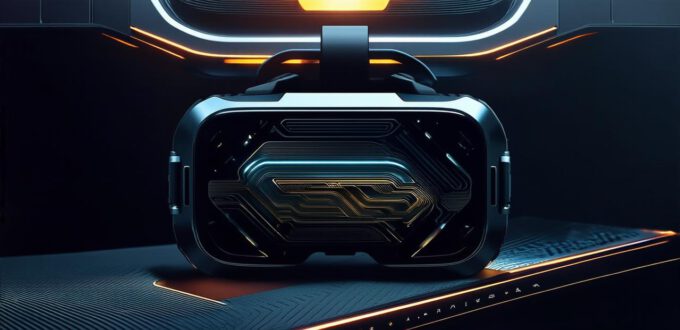<!DOCTYPE html>
Virtual reality (VR) is a rapidly growing technology that has the potential to revolutionize many industries.
From gaming and entertainment to education and healthcare, VR apps have already shown their potential to enhance user experiences in various ways. In this article, we will explore some of the top VR app ideas for your next project, taking into consideration the latest trends and innovations in VR development.
1. Educational Apps
Educational VR apps have been gaining popularity as they provide a more immersive learning experience for students. By using VR technology, students can virtually visit historical landmarks, explore the solar system, or even practice surgery without putting anyone at risk. One example of an educational VR app is Tilt Brush, which allows users to create and manipulate 3D objects in a virtual environment.
2. Travel Apps
Virtual reality travel apps offer a unique way for users to experience different cultures and destinations without ever leaving their homes. With VR technology, users can virtually explore famous landmarks, try local cuisine, and even participate in cultural activities. One example of a travel VR app is Google Expeditions, which allows users to take virtual field trips to over 900 destinations around the world.
3. Healthcare Apps
Virtual reality healthcare apps have the potential to revolutionize the way patients receive medical treatments. By using VR technology, patients can simulate real-life medical scenarios and practice procedures without putting themselves or others at risk. One example of a healthcare VR app is Pulse VR, which allows users to experience different medical procedures in a virtual environment.
4. Gaming Apps
Virtual reality gaming apps offer an immersive gaming experience that can transport users into different worlds and allow them to interact with the game environment in a more realistic way. With VR technology, users can feel like they are actually inside the game, making the experience much more engaging and enjoyable. One example of a gaming VR app is Beat Saber, which allows users to slice through blocks with light sabers set to the beat of music.
5. Product Visualization Apps
Virtual reality product visualization apps allow designers and architects to create and test different designs in a virtual environment before building them in real life. This can save time and resources as designers can make changes and adjustments without having to physically build and test their designs. One example of a product visualization VR app is Unity, which allows users to create and test 3D models and applications in a virtual environment.
6. Training Apps
Virtual reality training apps offer an immersive way for employees to learn new skills and improve their performance in a safe and controlled environment. By using VR technology, employees can simulate real-life scenarios and practice procedures without putting themselves or others at risk. One example of a training VR app is VirtualSpeech, which allows users to practice public speaking and presentation skills in a virtual environment.
7. Tourism Apps
Virtual reality tourism apps offer a unique way for users to explore different cities and destinations without ever leaving their homes. With VR technology, users can virtually walk through famous landmarks, visit museums and galleries, and even take virtual tours of hotels and resorts. One example of a tourism VR app is Google Expeditions, which allows users to take virtual field trips to over 900 destinations around the world.
FAQs
What are some benefits of using VR technology in education? Virtual reality technology can provide a more immersive learning experience for students by allowing them to virtually visit historical landmarks, explore the solar system, and even practice surgery without putting anyone at risk. This technology can also help make learning more engaging and enjoyable for students.
What are some benefits of using VR technology in travel?
Virtual reality travel apps offer a unique way for users to experience different cultures and destinations without ever leaving their homes. With VR technology, users can virtually explore famous landmarks, try local cuisine, and even participate in cultural activities. This technology can also help make travel more accessible and affordable for everyone.
What are some benefits of using VR technology in healthcare?
Virtual reality healthcare apps have the potential to revolutionize the way patients receive medical treatments by allowing them to simulate real-life medical scenarios and practice procedures without putting themselves or others at risk. This technology can also help reduce the need for physical testing and surgery, making treatments safer and more effective.
What are some benefits of using VR technology in gaming?
Virtual reality gaming apps offer an immersive gaming experience that can transport users into different worlds and allow them to interact with the game environment in a more realistic way. With VR technology, users can feel like they are actually inside the game, making the experience much more engaging and enjoyable.
What are some benefits of using VR technology in product visualization?
Virtual reality product visualization apps allow designers and architects to create and test different designs in a virtual environment before building them in real life. This can save time and resources as
